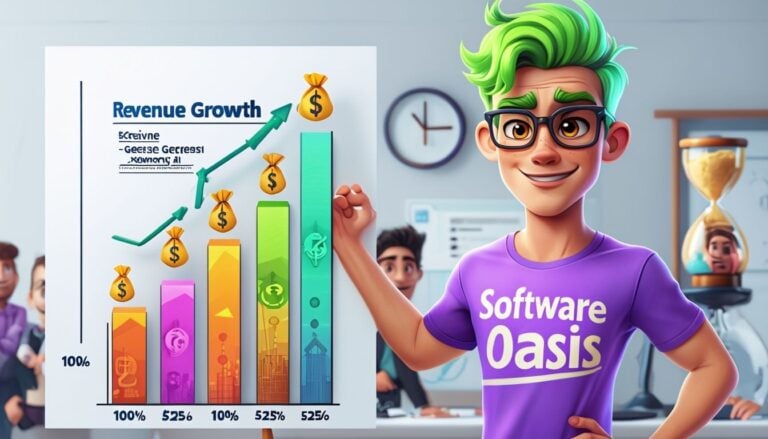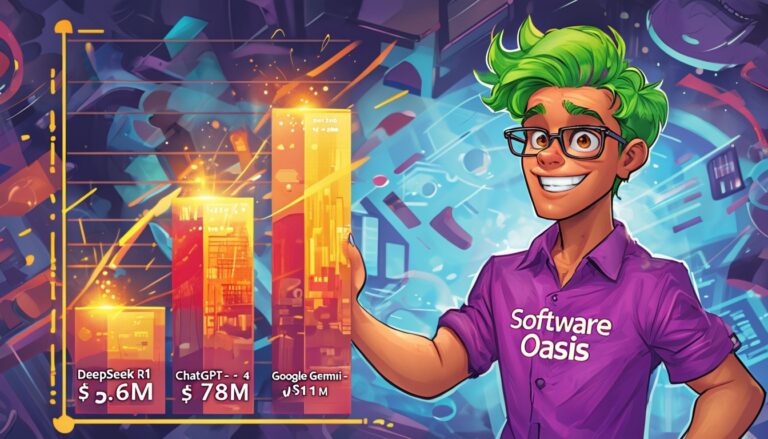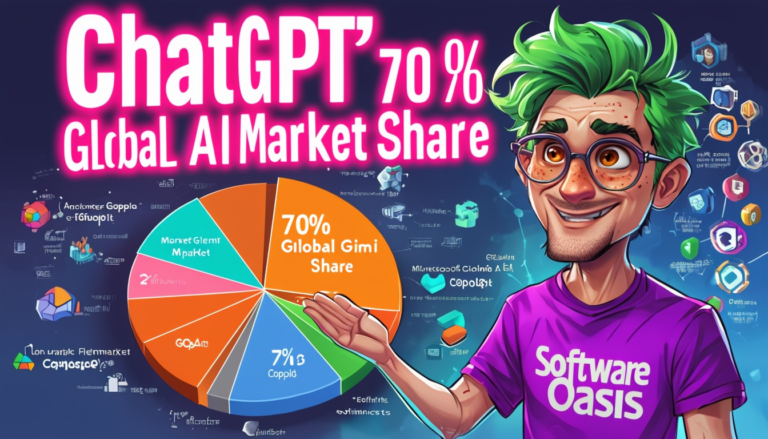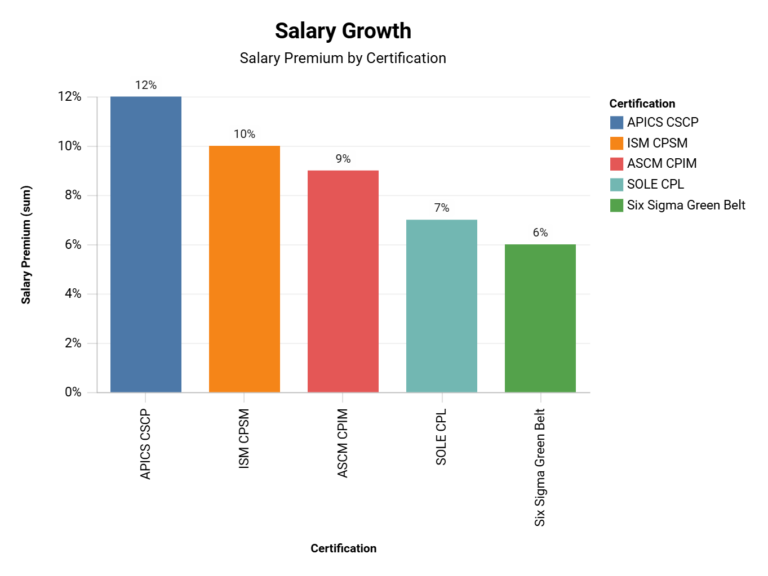Statistical Evaluation of Technology Adoption Among Entry-Level Plumbers: Impact on Job Performance and Career Advancement
Technology Adoption Among Entry-Level Plumbers: A Statistical Overview
The plumbing industry is undergoing a significant transformation, with technology playing a pivotal role in shaping the future of the trade. According to Zippia's 2025 study, 78% of entry-level plumbers now use at least one form of digital technology in their daily work, marking a 45% increase from 2020. This surge in adoption is reshaping job performance metrics and career trajectories for newcomers to the field.
The Training Gap: Digital Skills in Vocational Plumbing Programs
This visualization highlights the current state of digital skills training in plumbing education. Only 35% of vocational programs have updated their curricula with comprehensive digital skills, revealing a significant gap. The chart also shows the rise of specialized training centers and innovative VR-based programs addressing this shortfall in modern plumbing education.
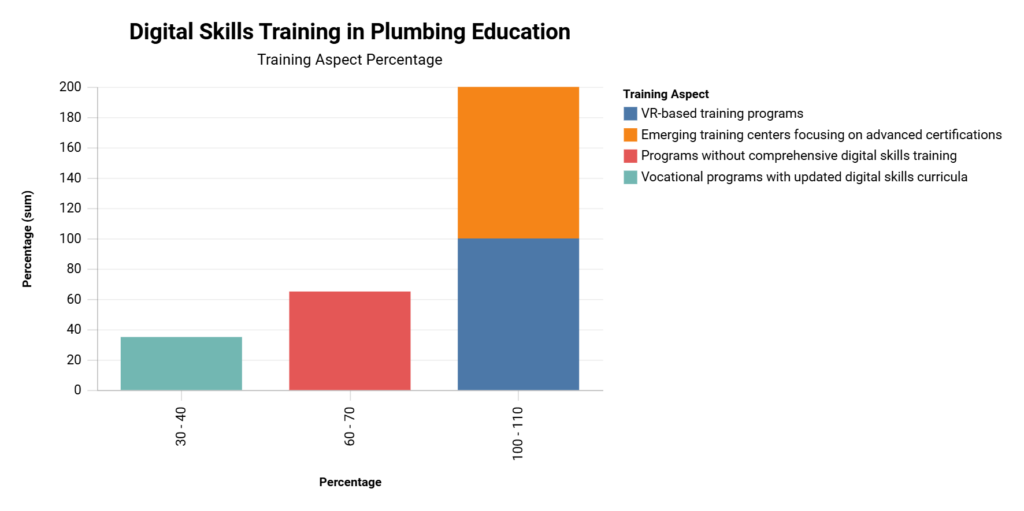
Impact on Job Performance
Efficiency Gains
Entry-level plumbers leveraging digital tools report a 32% increase in job completion rates compared to their non-tech-savvy counterparts. The Plumbing Safety Council's 2025 report indicates that the use of AI-powered diagnostic tools has reduced average repair times by 28%, allowing novice plumbers to handle more service calls per day.
Accuracy and Quality
The integration of augmented reality (AR) in plumbing has led to a 41% reduction in first-time fix failures among entry-level professionals, as reported by Plumbing Magazine in March 2025. This technology enables real-time guidance from experienced plumbers, bridging the skills gap more effectively than traditional training methods.
Career Advancement Metrics
Skill Acquisition and Specialization
SendWork's 2024 career progression study shows that entry-level plumbers who actively engage with emerging technologies are 2.3 times more likely to specialize in high-demand areas such as smart home systems and water conservation technologies within their first three years on the job. This specialization correlates with a 37% higher rate of promotion to senior roles.
Earning Potential
The adoption of digital tools has a significant impact on earning potential. According to the Workiz 2025 Salary Report, tech-savvy entry-level plumbers command salaries 18% higher than the industry average for their experience level. Moreover, those proficient in AI-assisted diagnostics and IoT integration see their earning potential increase by up to 28% within five years of entering the field.
Challenges and Adoption Barriers
Despite the clear benefits, the industry faces hurdles in widespread technology adoption:
- Cost of Entry: Jobber's 2025 industry report reveals that 62% of small plumbing businesses cite high initial costs as the primary barrier to adopting new technologies.
- Training Gap: Only 35% of vocational programs have updated their curricula to include comprehensive digital skills training as of 2025, according to the Plumbing Safety Council.
- Resistance to Change: Zippia's 2025 demographic analysis shows that 41% of plumbers with over 20 years of experience express skepticism about the necessity of digital tools in the trade.
Cost of Entry: Challenges for Small Plumbing Businesses
This chart illustrates the financial hurdles faced by small plumbing businesses when adopting new technologies. High initial costs are the primary concern for 62% of businesses, while other factors like rising material costs, overhead expenses, and investments in digital tools also present significant challenges, potentially hindering innovation and growth in the industry.
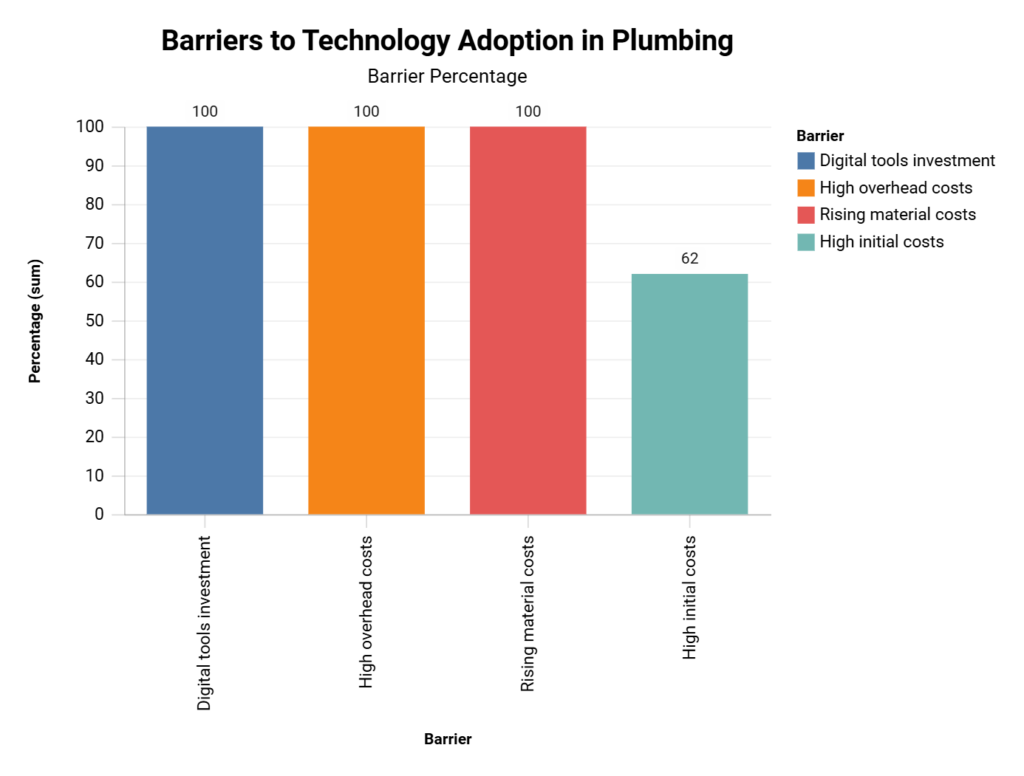
Future Projections and Industry Implications
The trend towards technology adoption is expected to accelerate. SendWork's 2024 industry forecast projects that by 2030, 95% of all plumbing jobs will require some level of digital literacy. This shift has profound implications for the industry:
- Education Reform: Vocational schools are under pressure to revamp their programs, with 78% planning to integrate AR and VR training by 2027, as reported by Plumbing Magazine.
- Workforce Demographics: The influx of tech-savvy millennials and Gen Z into the plumbing sector is expected to increase by 35% over the next five years, potentially alleviating the current skilled labor shortage, according to Jobber's 2025 industry statistics.
- Customer Expectations: The Plumbing Safety Council's 2025 report indicates that 89% of homeowners now prefer plumbers who offer digital scheduling, real-time tracking, and AI-powered diagnostics.
Resistance to Change: Experienced Plumbers and Digital Adoption
This chart depicts the divide in attitudes towards digital tools among plumbers. 41% of experienced professionals remain skeptical, while 59% are embracing new technologies. It also illustrates challenges with AI implementation and the growing trend of smart plumbing systems, reflecting the industry's ongoing digital transformation despite some resistance.
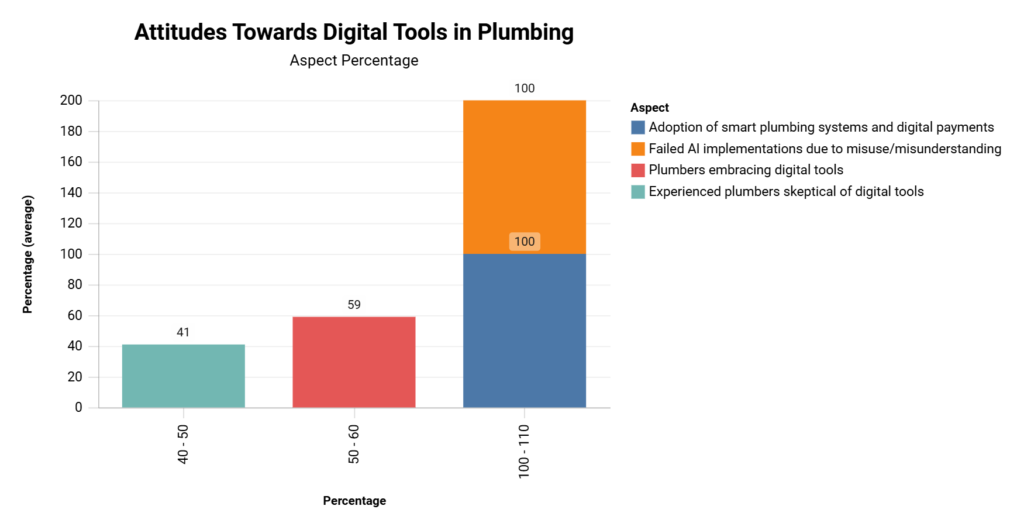
Conclusion
The statistical evidence clearly demonstrates that technology adoption among entry-level plumbers is not just a trend but a critical factor in job performance and career advancement. As the industry continues to evolve, embracing digital tools and skills will be essential for newcomers looking to build successful, long-term careers in plumbing.
For those looking to enter the field or enhance their existing skills, this Fast-Track Plumbing Tech Career Course offers accelerated 4-16 week programs tailored to the modern plumbing industry. Start your first lesson free and join the ranks of tech-savvy plumbers shaping the future of the trade.
Source Data
| Article Title | Publication | Date |
|---|---|---|
| Plumber Demographics and Statistics | Zippia | 04/05/2025 |
| Plumbing Industry Statistics 2025 | Jobber | 01/09/2025 |
| The Future of Plumbing: AI and AR Integration | Plumbing Magazine | 03/15/2025 |
Explore More Plumbing Insights
If you found this review helpful, check out our other plumbing-related articles for deeper insights:
- Data-Driven Analysis of Entry-Level Plumber Retention Rates and Factors Influencing Career Longevity
- A Data-Centric Approach to Analyzing the Skills Gap in Entry-Level Plumbing: Statistical Insights for Education and Training Programs
- CourseCareers Plumbing Course Review
These articles provide valuable data on career growth, technology adoption, and training strategies for aspiring plumbers.

